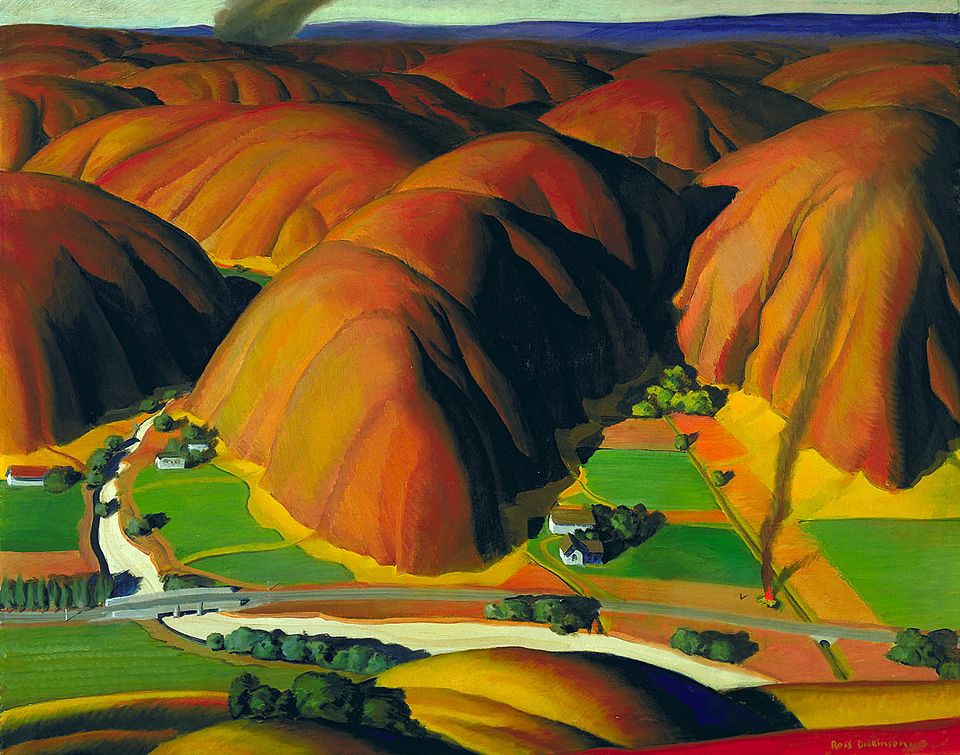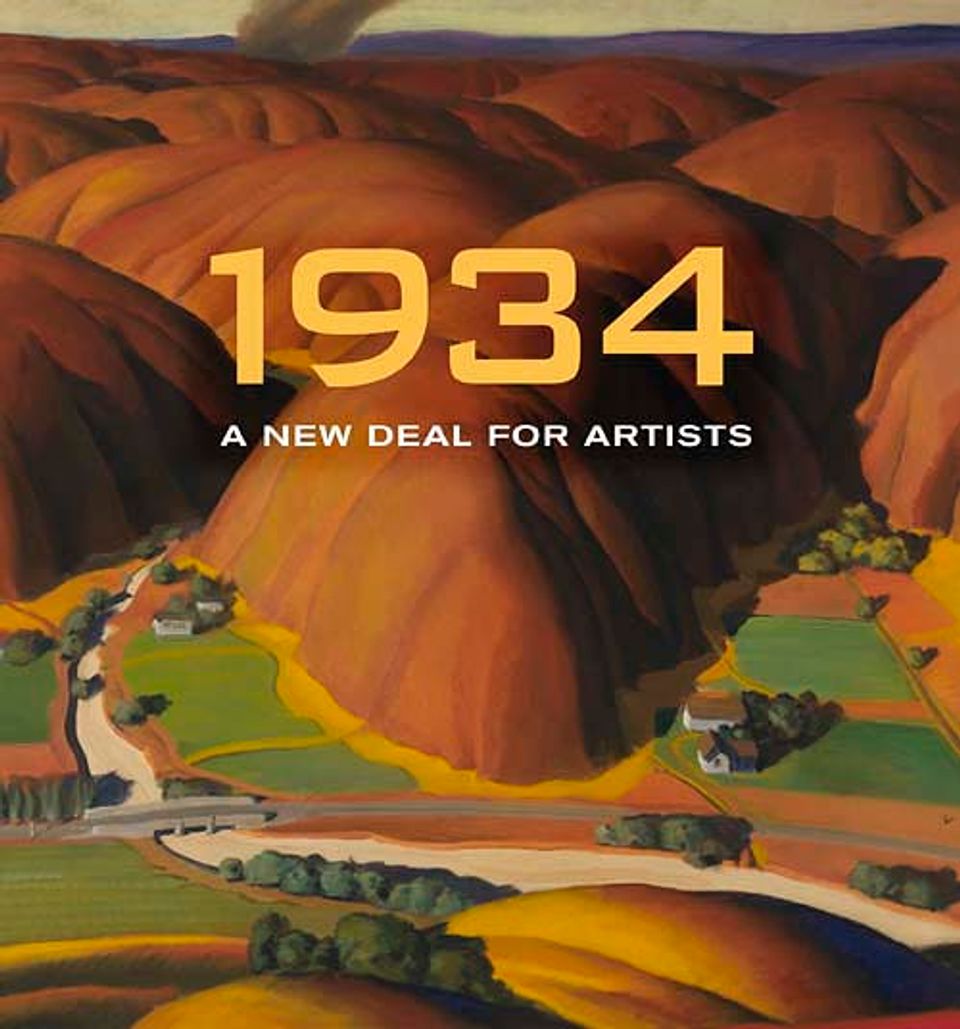1934: A New Deal for Artists

Ross Dickinson, Valley Farms, 1934
In 1934, Americans grappled with an economic situation that feels all too familiar today. Against the backdrop of the Great Depression, President Franklin Delano Roosevelt’s administration created the Public Works of Art Project — the first federal government program to support the arts nationally. Federal officials in the 1930s understood how essential art was to sustaining America’s spirit. Artists from across the United States who participated in the program, which lasted only six months from mid-December 1933 to June 1934, were encouraged to depict “the American Scene.” The Public Works of Art Project not only paid artists to embellish public buildings, but also provided them with a sense of pride in serving their country. They painted regional, recognizable subjects — ranging from portraits to cityscapes and images of city life to landscapes and depictions of rural life — that reminded the public of quintessential American values such as hard work, community and optimism.
Description
1934: A New Deal for Artists was organized to celebrate the 75th anniversary of the Public Works of Art Project by drawing on the Smithsonian American Art Museum's unparalleled collection of vibrant artworks created for the program. The paintings in this exhibition are a lasting visual record of America at a specific moment in time. George Gurney, curator emeritus, organized the exhibition with Ann Prentice Wagner, curator of drawings at the Arkansas Art Center.














